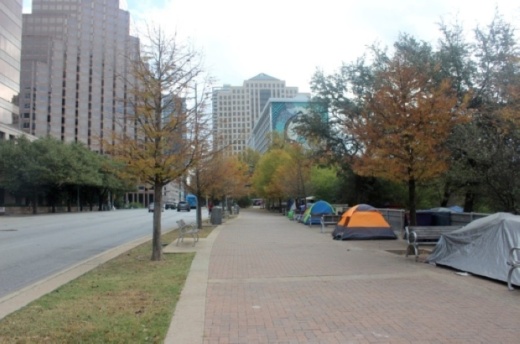For phase one of the Housing-Focused Homeless Encampment Assistance Link program, or HEAL, City Council offered vague descriptions of the four encampment areas it wants city staff to focus on: a major intersection under a state highway, on a traffic island or median that is adjacent to a pedestrian walkway in South Central Austin, a sidewalk or public right of way near a public library in East Austin, along a “major” road in downtown Austin, and an intersection adjacent to “significant vehicular and pedestrian traffic” in Northwest Austin.
The city will immediately begin sending social workers to survey the specific needs of people living in the four encampment areas with the goal of eventually vacating campsites by connecting people to services and housing. By March 4, City Manager Spencer Cronk has to come to City Council with a plan on how to prohibit camping once the areas are cleared out.
City Council was adamant Cronk’s plan not use police officers or citations to deter camping, saying it did not want to renege on its 2019 effort to effectively decriminalize homelessness. City Council also told Cronk that the $3 million requested to move residents into housing and services could not be diverted from existing homeless service programs or efforts to purchase permanent supportive housing facilities.
If phase one is successful, the city will move on with a second and third phase. The program will target encampments determined to be unsafe by the city’s homelessness strategy office and city manager.
The new effort comes as scrutiny has intensified over Austin’s response to its growing homelessness challenges. In June 2019, City Council voted to decriminalize public camping, a controversial decision aimed at lessening the penal burden on Austin’s homeless community. The visibility of Austin’s homelessness issue has since grown, as have efforts to overturn City Council’s efforts. On Feb. 4, the city clerk announced a petition aimed at reinstating the city’s camping ban had more than the necessary 20,000 signatures to place the issue to a vote on the May 1 election.
City Council is eyeing a Feb. 9 special-called meeting to finalize the ballot language for the May 1 election.





